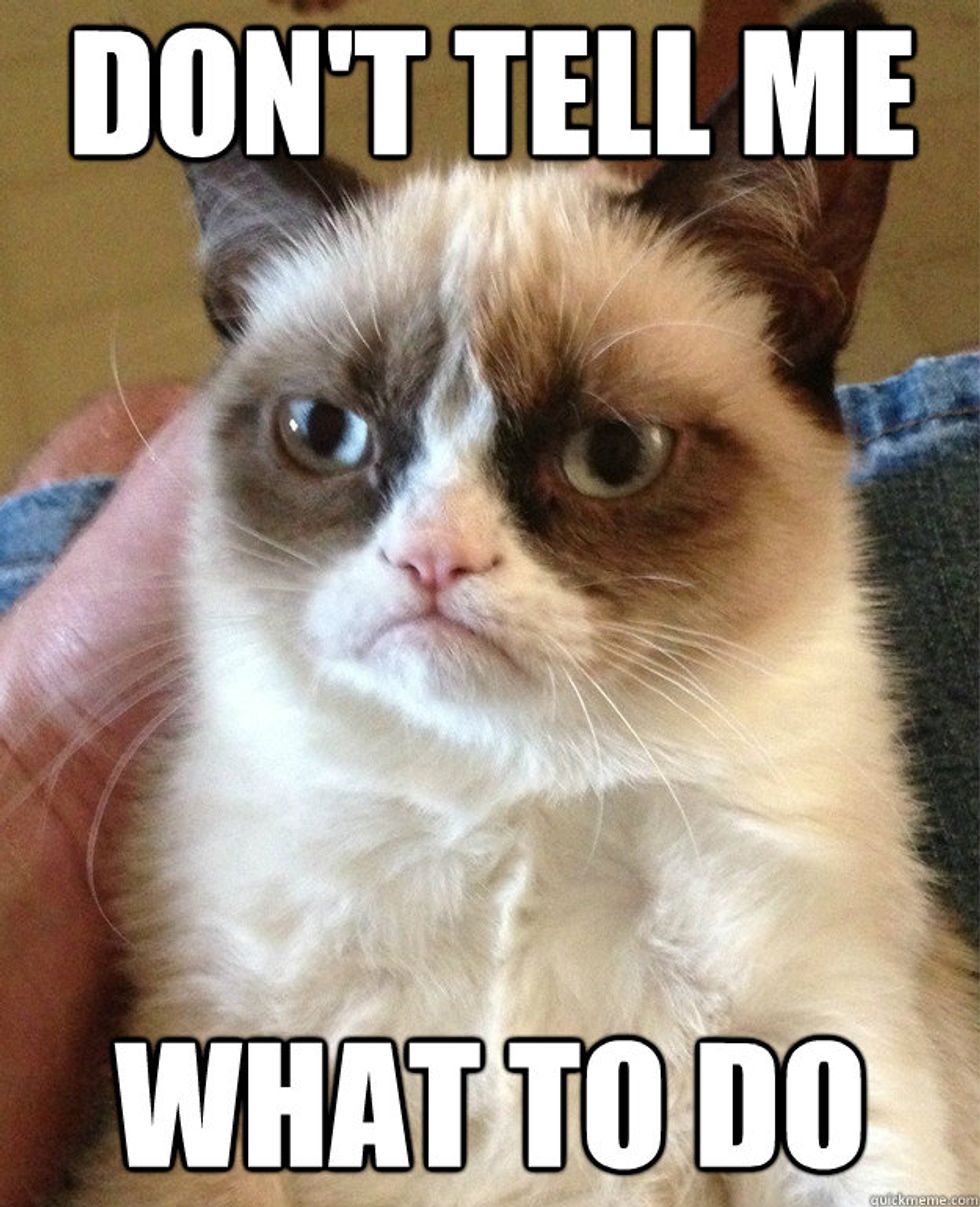The existence of authority creates two possible responses to it: acceptance or rejection. Given that authority lie In the hands of some but never all, as communism once serenaded,a polarization of interests is practically inevitable because of the wide range of circumstances we deal with and desires that we have. If you've ever watch a group of children try to decide on something among themselves, there is a great chance that the group will find an argument before a consensus. A classroom for young children would never function without the instruction of a teacher to guide their lessons and keep the clashing egos in check.
Children regularly demonstrate the tightrope that people walk where rules are concerned because of their blatant honesty about their feelings and thoughts. An excitable child hates quiet time, and an impatient student will leave before their teacher is done talking at the bell (something many teachers hate) and they won't be shy about it. Whether through words or physical gesture, they will let the authority know their displeasure. It's always entertaining to watch a toddler who just learned how to walk whine in defiance whenever someone stops them from doing as they like. You'll see the child reaching for objects and dashing off in any direction with wide eyes, and any time they're picked up or scolded, their aggravation is crystal clear.
It's that presence of opposition that is so predominant in our youngest, purest form that makes me believe that humans are, more often than not, naturally anti-authority. Obviously, there are some children who are the opposite and easily allow for regulation and oversight by others, but in my lifetime I've been around enough kids to see for myself that a staggering number of them want things their way or no way. It's the sway of the parents and role models around them that will foster or diminish their inclinations of defiance.
Catholicism teaches that God gave humans free will and the ability to choose to do the right thing. The reason I remember being given for this was because a person who never had to choose to do the right thing can't truly be considered good if they never decided for themselves to do good. If it was an automatic response, then there is nothing genuine about it: it would be a promised end. This idea makes life a morality a test, distributed in increments throughout one's life, with all the points added at the end.
It's actually a pretty funny thought to consider that a person would still feel the urge to go against the authority of an all powerful being just to satisfy a passing carnal desire. Even when threatened with an eternity of burning alive, people of the Catholic faith still choose to "sin" when their urges elevate to need. Even outside the realm of religious faith, there are very apparent displays of this stance against the systems in place, whether it be law enforcement or the words of experts in fields like health and safety. Maybe in that way, desire really is the precursor to sin, but then that would heavily suggest that humans are big bags of sin to from the get-go.






 The minimum wage is not a living wage.
StableDiffusion
The minimum wage is not a living wage.
StableDiffusion
 influential nations
StableDiffusion
influential nations
StableDiffusion












